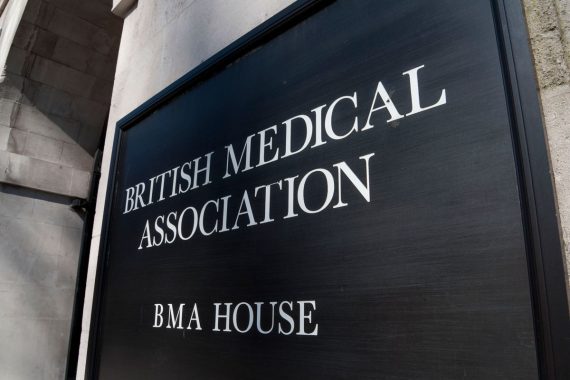The BMA’s UK GP Committee (GPC UK) has voted through ‘significant reform’, including reducing voting members and freeing up funding for more England meetings.
Funding freed up from the changes will be directed towards enabling GPCE to meet more than four times a year, in recognition of the ‘significant challenges’ faced by the ‘biggest nation’.
GPC England is currently surveying the profession on their priorities to help shape future contract negotiations.
In a GPC UK meeting last month, the reformed committee motion passed overwhelmingly, and co-chairs Dr Andrew Buist and Dr Alan Stout have welcomed the move.
BMA members will approve final sign-off at the annual representative meeting (ARM) in June, after which the reformed committee will take effect.
Earlier this year, local GP leaders across the UK passed a motion at the annual LMCs conference which called on GPC UK to ‘focus on addressing pan-UK issues affecting all component GPC committees, including sessional and GP trainee committees’.
The main changes:
- The number of voting members will be reduced from 84 to 45;
- There will be equal representation from executives of the four countries, sessional committee and registrar committee (the six ‘daughter committees’);
- Representatives elected from ARM and UK LMC conference will be maintained;
- There will be a focus on pan-UK issues, as defined by UK LMC conference;
- The committee will act as an information and ideas exchange between the six daughter committees.
Dr Buist, who is also chair of BMA Scotland’s GPC, told Pulse that the vote was a ‘welcomed step forward’ and would make the committee ‘more representative and more effective’.
‘It recognises the changes that have occurred through devolution of health in the UK, the increasing significance of the role played by sessional GPs and the importance of GP registrars,’ he added.
The motions in full
GPC UK motion – December 2023
GPC UK agrees that the updated reforms proposal is an acceptable first step in revising the structure of GPC UK and asks the GPC UK co-chairs to move forward with the required amendments, with a plan to come back to the committee with next steps at regular intervals.
UK LMC conference – May 2023
LIVERPOOL: That conference, with respect to GPC UK:
(i) expects the committee to represent the interests of all GPC committees and focus on addressing pan-UK issues affecting all components GPC committees, including sessional and GP trainee committees
(ii) demands clarity on the composition of GPC UK
(iii) expects any changes to the composition of GPC UK to allow it to function as intended, focusing on pan-UK issues, without any one component committee dominating the membership of the committee.
At the England LMCs conference in November, local GP leaders voted for an industrial action ballot of GPs to take place once the outcome of contract negotiations is known.
GPCE chair Dr Katie Bramall-Stainer told delegates that the ‘strength of the profession’s negotiating position is going to be highly dependent’ on the willingness of GPs to consider the possibility of industrial action.
The current five-year GP contract in England will come to an end in March, meaning the GPC will negotiate with the Government for a new contract which could include more extensive reforms than recent years.
However, NHS England’s primary care director told Pulse in August that they are ‘not in a position’ to negotiate a new five-year deal due to a lack of funding commitment, and the 2024/25 contract will be a ‘stepping stone’.
In Wales, the GPC walked away from contract negotiations with the Welsh Government and NHS Wales because ‘no credible financial offer’ was put forward.
Pulse July survey
Take our July 2025 survey to potentially win £1.000 worth of tokens












